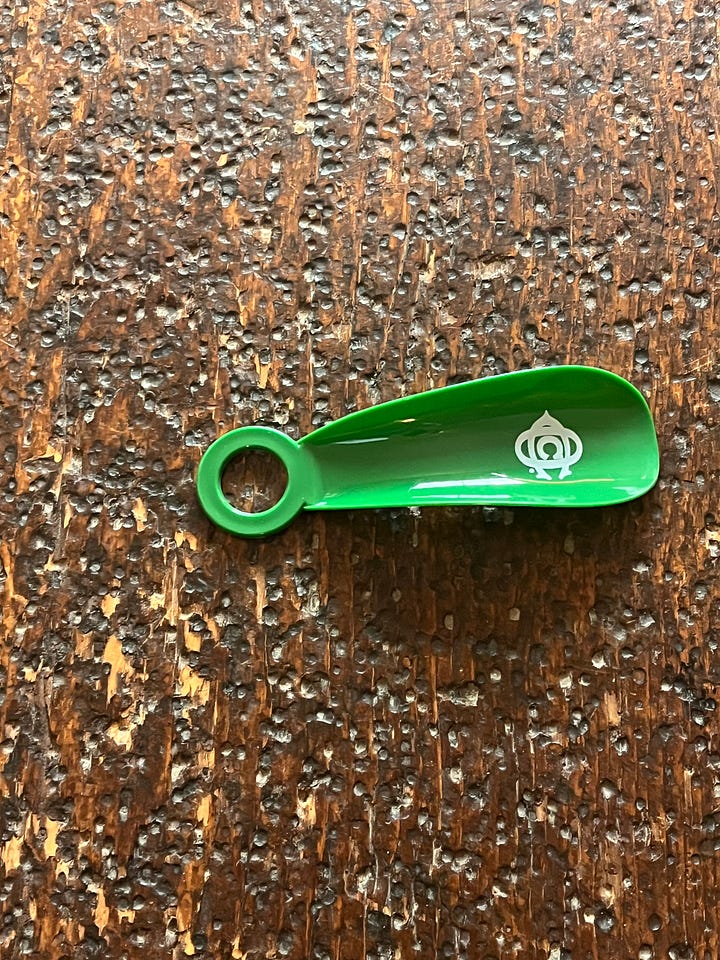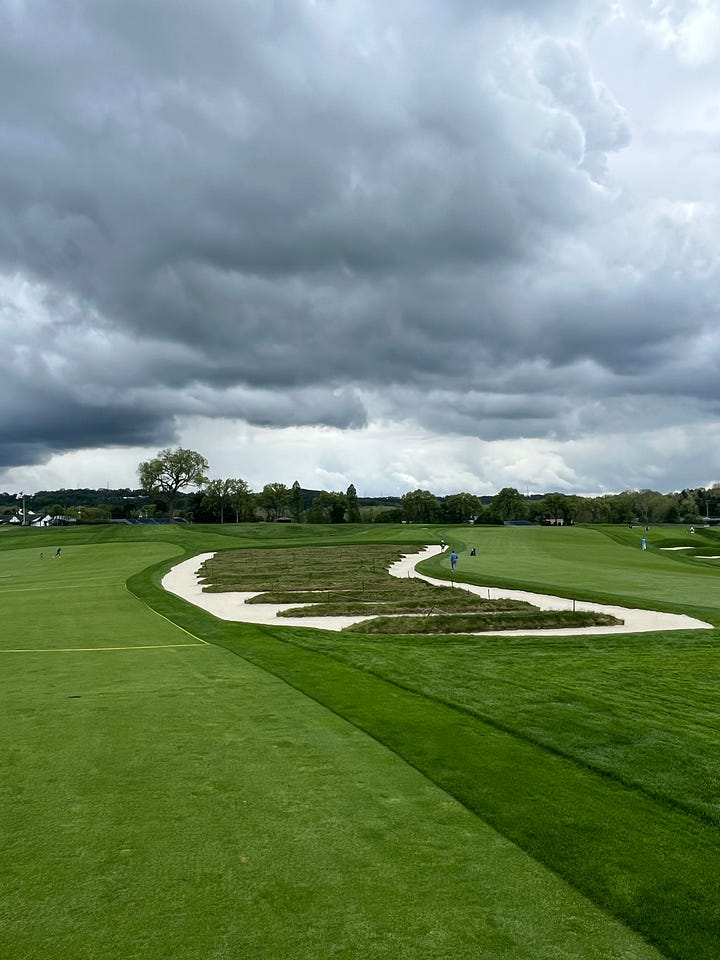On the Other Side
Four years after my brother's death I understand something about what I will never understand.
We met at the hotel. I got there first and watched Tim pull into the lot beside me. Just like our father used to do when we were boys and we were outside as he came home from work, Tim gave me the finger and we both laughed, remembering Dad. We rolled down our windows and I told him we should leave now, we could check in later.
He got out of his car and into mine. My daughter had been born two months before, and this was the first time I had seen my brother since her arrival.
"You ready?" I asked.
But he didn’t answer. Instead, he stuck out his hand and said, "Hey, congratulations. You're a father now. Welcome to the club."
That was nine years ago, in the parking lot of a Hampton Inn somewhere around Pittsburgh for the US Open at Oakmont Country Club. Yesterday I returned to the club for the first time since then. Much has happened in my life since that US Open. My wife, Mary, and I had another child, a boy, I published a book, became a freelance golf writer, got tenure at the university where I teach, and during this stretch, my brother died, in 2021.
I've written many essays about Tim since his passing and have started writing a memoir as a result. Most of these essays revolve around golf and our relationship through the game. I knew going back to Oakmont would remind me of him, and I was eager to return because I like remembering when he was happy but also because every time I force myself back into the push and pull of happiness and grief, I learn something new.
Earlier this week, I was interviewing a profile subject, and he said there was no game like golf. "You play one round of golf with someone and you're bonded to them for life." Golf is an incredibly hard game, even for the talented (much like writing). Every shot you take on a golf course is a challenge because on every shot you're trying to make a golf ball do what you want it to do. You want it to fly high or low, you want it to bend left or right. There are different things you can do with your swing to achieve these effects, but golf is a game where millimeters matter. If you’re just a fraction off at impact ofter your shot will be errant and miss its target.
I'm an average player. The amount of good shots I hit in a round is only a handful. Writing—any artistic pursuit—can be like this, too. Some days, the words circle and fly above and you simply can’t catch them. Other days the words pour forth, as if they are breathed through you. Golf can be that way as well. Even a player like me can go out and hit nearly every shot the way he wants, and the game will feel magical because what occurs is how you envision it in a difficult endeavor.
Golfers feel a kinship in the difficulty of the game but also the elation it brings when things go well. If a player is struggling and hits one good shot, every member of the group cheers. And because golf takes so long to play, you do indeed remember the people you play with for many days afterward. If you feel connected to those people while you play, then you have made a friend for life. It's really true.
So, imagine what a game like that must have meant to my brother and me, who were bound by blood, yes, but were also bound by our love and admiration for each other.
At Oakmont yesterday, I pulled into the gates, and I thought about Tim. I walked into the historic clubhouse, the locker room, which has not changed since the club was built, and I marveled that I was there at all. I got to go behind the velvet rope into a world I never thought I would experience.
I’m not talking about the exclusivity of it—or maybe I am and don’t recognize it as such. But the deal I made with golf, when I started playing all those years ago with Tim, was that venues like Oakmont and other courses would not be in my orbit. And I was okay with that. We had grown up in Corbin, Kentucky, a small town in the foothills of the Appalachian Mountains with two parents who had been born into intolerable poverty and worked themselves out of it to raise us. I didn’t need access. Golf was our game, and it became clear early on, a way for us to spend time together. We might be on the outside and even a little envious, but we weren’t status chasers. We had each other.


On the day Tim died, the day was impossibly beautiful. Blue skies dotted with white clouds here and there. After leaving my mother and father, Tim’s wife and his boys, I drove back home to Ohio, and I thought about the day, how it was the kind of afternoon when we should have been playing golf. That’s how important golf was to us, that in the immediate hours of his death, I was thinking of Tim on the golf course with me.
I had kept it together, publicly, during his long illness. I had stifled cries, sobbed into pillows to muffle the sound, and mourned him slowly and silently. Now, in the car, racing down the highway and returning to my own young family, I shouted his name at the top of my lungs. I called to him, understanding he would never call back to me and I would never hear his voice again, much less play golf.
During my round yesterday, which was for the media covering this year’s championship, I was paired with two other writers and the head of the USGA. There’s not much time with strangers for quiet reflection. There’s chit-chat and even a few reporter-ly questions here and there. Rain had fallen off and on all day. The wind had blown, dropping the temperature ten degrees, at times. I had been focused on the golf, but when we got to the eighteenth hole, and our round was almost over, I thought of Tim.
I looked across the course’s famous church pew bunkers to some grandstands in the distance, where he and I had sat nine years before, eating frozen lemonades like two little kids and just as giddy. Now, I had played this course we had marveled at together, I thought. Why had these opportunities come to me? Why could he not share in them? His life ended and mine has continued in fantastical and amazing ways around the game we both very much loved.


For years I have loved Randall Jarell’s poem, “90 North” in which he writes:
Pain comes from the darkness
And we call it wisdom. It is pain.I hit my drive and walked down the eighteenth fairway, and I shook my head. If someone was paying attention, they may have thought it was because I was displeased with the shot but it was only me thinking about how relentless life is, how much our happiness is sometimes given to chance. My brother’s death brought me into the fraternity of lost brothers, a club I never wanted to join. I understand now that his death will never make sense to me and that it doesn’t have to. I guess that is acceptance and if I can accept that then I can also accept that this game he turned me onto, and which I embraced, has carried me in my grief and brought me a measure of joy in all this pain.



Beautiful, Mike. Welcome to Substack.
Just lovely, Mike. Without love there is no grief. I’m so happy you are embracing it.